Conference chat: Revolution and collaboration at the EASA Conference 2014
Janine Prins and Zane Kripe discuss their experiences at the European Association of Social Anthropologists (EASA) conference this summer in Tallinn, Estonia. Did it live up to the promise of being revolutionary?
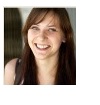 Zane: Janine, I am so glad we've met up at the EASA conference. It's easy to feel lonely at such large events. This one has gathered more than 1100 participants. What a nightmare it must have been to organise it! University of Tallinn and their Anthropology department did an incredible job arranging it all.
Zane: Janine, I am so glad we've met up at the EASA conference. It's easy to feel lonely at such large events. This one has gathered more than 1100 participants. What a nightmare it must have been to organise it! University of Tallinn and their Anthropology department did an incredible job arranging it all.
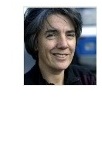 Janine: I’ve never seen so many volunteers and such good food at a conference of this size, and if there was any stress I didn't see it. It made me wonder about Estonia itself. I associated it with German discipline and Scandinavian taste; striving for excellence. But you are Latvian so you may know if this is nonsense. It was my first time in Estonia and my stepmother is of Baltic-German descent so naturally I was extra curious.
Janine: I’ve never seen so many volunteers and such good food at a conference of this size, and if there was any stress I didn't see it. It made me wonder about Estonia itself. I associated it with German discipline and Scandinavian taste; striving for excellence. But you are Latvian so you may know if this is nonsense. It was my first time in Estonia and my stepmother is of Baltic-German descent so naturally I was extra curious.
 Z: Right! Ever since regaining its independence in 1991 Estonia has been positioning itself as 'Nordic' and I think quite successfully. Although… at some points, especially observing just how well the conference was organized, I had to wonder how much of the extra work that was put in was motivated by the need to prove to an international audience just how European Estonia is. Even though has been part of the EU for more than 10 years, that 'Europeanness' is still not necessarily taken for granted.
Z: Right! Ever since regaining its independence in 1991 Estonia has been positioning itself as 'Nordic' and I think quite successfully. Although… at some points, especially observing just how well the conference was organized, I had to wonder how much of the extra work that was put in was motivated by the need to prove to an international audience just how European Estonia is. Even though has been part of the EU for more than 10 years, that 'Europeanness' is still not necessarily taken for granted.
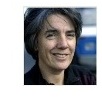 J: Well, I would agree with you if the Russian minorities were given equal civil rights, despite the bloody past. I was quite disturbed to realise the very poor conditions they live under. How should we understand that messy reality?
J: Well, I would agree with you if the Russian minorities were given equal civil rights, despite the bloody past. I was quite disturbed to realise the very poor conditions they live under. How should we understand that messy reality?
 Z: Good point, and although it takes a more institutional perspective, Gregory Feldman's work on the identity discourse in Estonia might be an interesting read. It discusses how different narratives about Estonia's identity have been constructed to respond to the various political, social and economic needs. Some of his other work deals more specifically with integration issues.
Z: Good point, and although it takes a more institutional perspective, Gregory Feldman's work on the identity discourse in Estonia might be an interesting read. It discusses how different narratives about Estonia's identity have been constructed to respond to the various political, social and economic needs. Some of his other work deals more specifically with integration issues.
 J: Great, thanks for including an anthropological take on contemporary political issues in that region. Now I feel more relaxed talking about the conference itself.
J: Great, thanks for including an anthropological take on contemporary political issues in that region. Now I feel more relaxed talking about the conference itself.
 Z: Yes! What were you aming to get out of the conference? For every time slot in the programme there were 30 parallel sessions to choose from!
Z: Yes! What were you aming to get out of the conference? For every time slot in the programme there were 30 parallel sessions to choose from!
 J: Yeah, one of the reasons why I don't usually go to such massive conferences. I’m also impatient with the format of listening to the papers, often without enough time for discussion. However, this conference experimented with a different format: interactive laboratories where instead of presenting papers colleagues could improvise and do things together. Another important aspect was the whole theme of ‘collaboration’ as I’m involved in a research project that applies co-creation methods. What was your main interest in attending?
J: Yeah, one of the reasons why I don't usually go to such massive conferences. I’m also impatient with the format of listening to the papers, often without enough time for discussion. However, this conference experimented with a different format: interactive laboratories where instead of presenting papers colleagues could improvise and do things together. Another important aspect was the whole theme of ‘collaboration’ as I’m involved in a research project that applies co-creation methods. What was your main interest in attending?
 Z: Well, for me, this was my first large-scale anthropology conference. I had a chance to present my research paper on Internet technology startups so I was looking forward to meeting other scholars in the panel who are working on related topics. And I was very excited about meeting other anthropologists from the Baltics. The institutional basis of the discipline is quite young there. Tallinn Department of Anthropology was only founded in 2006.
Z: Well, for me, this was my first large-scale anthropology conference. I had a chance to present my research paper on Internet technology startups so I was looking forward to meeting other scholars in the panel who are working on related topics. And I was very excited about meeting other anthropologists from the Baltics. The institutional basis of the discipline is quite young there. Tallinn Department of Anthropology was only founded in 2006.
Though, as you say, it can get a bit exhausting to be sitting inside all day (when the weather outside was lovely!) at a conference and being talked at can get a bit exhausting. So I am really glad I took part in a one of the Labs. According to, Carlo Cubero, who convened* them, they were intended as settings “to create something on-site rather than come to Tallinn with a finished presentation.”
 J: True! That in itself is a revolutionary idea, so I was intrigued. And the same Carlo Cubero is behind the new two year MA programme on Audiovisual Ethnography. It makes me wonder if Tallinn is going to be an incubator for innovation in anthropology, especially with an audiovisual forcus. Which lab did you take part in?
J: True! That in itself is a revolutionary idea, so I was intrigued. And the same Carlo Cubero is behind the new two year MA programme on Audiovisual Ethnography. It makes me wonder if Tallinn is going to be an incubator for innovation in anthropology, especially with an audiovisual forcus. Which lab did you take part in?
 Z: I chose a lab related to my interests in Future as a concept and it was really great. Instead of just discussing the concept of 'future' we approached it, I would say, in a more experimental manner. We went out into the streets of Tallinn, interviewed people, asked them to direct a play about the future, or to draw it, took photos, did yoga with random passers-by, etc. It was great not only to stretch my thinking, but also my body, and to try out various ways to approach 'future' and explore the relationships between this theme and people and environment.
Z: I chose a lab related to my interests in Future as a concept and it was really great. Instead of just discussing the concept of 'future' we approached it, I would say, in a more experimental manner. We went out into the streets of Tallinn, interviewed people, asked them to direct a play about the future, or to draw it, took photos, did yoga with random passers-by, etc. It was great not only to stretch my thinking, but also my body, and to try out various ways to approach 'future' and explore the relationships between this theme and people and environment.
 J: Who designed the exercises you did, on the basis of what? And apart from the fun of it, did the approach lead to any scholarly results? How would it compare to a regular meeting do you think? In other words: what are the pro’s and con’s of this kind of approach, in your experience?
J: Who designed the exercises you did, on the basis of what? And apart from the fun of it, did the approach lead to any scholarly results? How would it compare to a regular meeting do you think? In other words: what are the pro’s and con’s of this kind of approach, in your experience?
 Z: Oh, these are valid questions, Janine. I've been thinking about some of them too. The exercises were planned in part by the conveners of the lab - Sarah Pink (RMIT University), Andrew Irving (University of Manchester), Juan Francisco Salazar (University of Western Sydney) and Johannes Sjöberg (University of Manchester). But some of the approaches developed spontaneously on the spot. For example, during our conversations in the park with a young couple, we learned that one of them was an artist, so it made sense to invite him to draw the future. His girlfriend is a photographer, so she chose to capture our interaction about the future through camera.
Z: Oh, these are valid questions, Janine. I've been thinking about some of them too. The exercises were planned in part by the conveners of the lab - Sarah Pink (RMIT University), Andrew Irving (University of Manchester), Juan Francisco Salazar (University of Western Sydney) and Johannes Sjöberg (University of Manchester). But some of the approaches developed spontaneously on the spot. For example, during our conversations in the park with a young couple, we learned that one of them was an artist, so it made sense to invite him to draw the future. His girlfriend is a photographer, so she chose to capture our interaction about the future through camera.
 J: Sounds like doing fieldwork.
J: Sounds like doing fieldwork.
 Z: You are absolutely right! But in a group setting. And at a conference. Now, whether that experimentation leads to 'scholarly results' is ofcourse open to debate, and time will tell. For me it was inspirational and productive even though I find it hard to define what was the clear 'output' of it, to use more managerial terminology. Are we ready to consider something that is more like 'an inspiration', something more open ended, as output?
Z: You are absolutely right! But in a group setting. And at a conference. Now, whether that experimentation leads to 'scholarly results' is ofcourse open to debate, and time will tell. For me it was inspirational and productive even though I find it hard to define what was the clear 'output' of it, to use more managerial terminology. Are we ready to consider something that is more like 'an inspiration', something more open ended, as output?
 J: Well, aren’t conferences also meant to be a source of inspiration? At the moment quite a few academics are experimenting with alternative routes, through more open-ended approaches, even including art practices. Many are questioning and investigating the mechanisms of our knowledge production. Like that plenary meeting on the role of various media, with scholars from the Sensory Ethnographic Lab (SEL) at Harvard University. Was that inspiration by means of provocation maybe?
J: Well, aren’t conferences also meant to be a source of inspiration? At the moment quite a few academics are experimenting with alternative routes, through more open-ended approaches, even including art practices. Many are questioning and investigating the mechanisms of our knowledge production. Like that plenary meeting on the role of various media, with scholars from the Sensory Ethnographic Lab (SEL) at Harvard University. Was that inspiration by means of provocation maybe?
 Z: Provocation! Yes, it definitely came across as provocative.
Z: Provocation! Yes, it definitely came across as provocative.
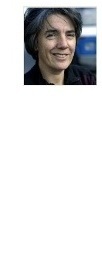 J: Sound specialist Ernst Karel made us listen to edited sounds of researchers at work; their conversations, the shuffling of papers, etc. He wanted to capture - in sound only - some moments where science is being produced. Film maker anthropologist Stephanie Spray showed us an unedited long take of a man and woman during an intimate get-together, without explaining to the audience that what we're seeing is two buddies drinking together. We were meant to feel uncomfortable, watching this footage, to become aware of the hygienised editing choices we tend to make in presenting our data. But the contributions made the ‘mainstream’ scholarly audience feel too uncomfortable, maybe.
J: Sound specialist Ernst Karel made us listen to edited sounds of researchers at work; their conversations, the shuffling of papers, etc. He wanted to capture - in sound only - some moments where science is being produced. Film maker anthropologist Stephanie Spray showed us an unedited long take of a man and woman during an intimate get-together, without explaining to the audience that what we're seeing is two buddies drinking together. We were meant to feel uncomfortable, watching this footage, to become aware of the hygienised editing choices we tend to make in presenting our data. But the contributions made the ‘mainstream’ scholarly audience feel too uncomfortable, maybe.
 Z: What I gathered was that many attendees felt that the work presented wasn't anthropological enough, which of course invites a discussion about what is anthropological? What is the knowledge anthropology produces, how it is done and where are the boundaries that differentiate anthropology from other disciplines? I think Adam Kuper's talk was aimed to address these points to a certain extent. What did you think?
Z: What I gathered was that many attendees felt that the work presented wasn't anthropological enough, which of course invites a discussion about what is anthropological? What is the knowledge anthropology produces, how it is done and where are the boundaries that differentiate anthropology from other disciplines? I think Adam Kuper's talk was aimed to address these points to a certain extent. What did you think?
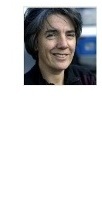 J: Indeed Kuper gave his view on recent shifts in research agendas, guided by changing justifications for anthropology as a separate discipline. He addressed us as one of the co-founders of EASA, now celebrating its 25th anniversary, and recalled that around 1989 the discipline was in a crisis due to postcolonialism. Even so, two unique characteristics remained - and continue to remain - crucial: the aspect of comparison and the fact that poorer countries are under researched. As for the immediate future he added during the discussion that contemporary anthropologists should incorporate one or two other scientific disciplines into their acts of comparison.
J: Indeed Kuper gave his view on recent shifts in research agendas, guided by changing justifications for anthropology as a separate discipline. He addressed us as one of the co-founders of EASA, now celebrating its 25th anniversary, and recalled that around 1989 the discipline was in a crisis due to postcolonialism. Even so, two unique characteristics remained - and continue to remain - crucial: the aspect of comparison and the fact that poorer countries are under researched. As for the immediate future he added during the discussion that contemporary anthropologists should incorporate one or two other scientific disciplines into their acts of comparison.
 Z: Certainly, it does sound reasonable to bring together multiple disciplines, but the question then is whether the institutional settings are ready to support and encourage such interdisciplinarity...
Z: Certainly, it does sound reasonable to bring together multiple disciplines, but the question then is whether the institutional settings are ready to support and encourage such interdisciplinarity...
 J: I see hybridization in many sectors and all kinds of institutional contexts are currently under threat, so one way or another we will have to deal with it. We seem to be at an open ended moment in time, how is that for your concept of future ; ) ?
J: I see hybridization in many sectors and all kinds of institutional contexts are currently under threat, so one way or another we will have to deal with it. We seem to be at an open ended moment in time, how is that for your concept of future ; ) ?
 Z: I take your point. And I hope we'll make the best out of it : ) On the evening of the third day of the conference, in a bar called “the Lost Continent” the participants of the Futures lab wrote a “Manifesto for an Anthropology of the Future”. What do you think? Can revolutions happen in between times, rather than marking the end or the beginning?
Z: I take your point. And I hope we'll make the best out of it : ) On the evening of the third day of the conference, in a bar called “the Lost Continent” the participants of the Futures lab wrote a “Manifesto for an Anthropology of the Future”. What do you think? Can revolutions happen in between times, rather than marking the end or the beginning?
 J: Perhaps revolutions creep up on us during ‘in between’ moments? A manifesto drawn up in a bar at unplanned hours in a demographically speaking ‘lost’ continent sounds promising. I love it. If this is what you took away from the conference, I think we can say it did live up to its promise of being revolutionary!
J: Perhaps revolutions creep up on us during ‘in between’ moments? A manifesto drawn up in a bar at unplanned hours in a demographically speaking ‘lost’ continent sounds promising. I love it. If this is what you took away from the conference, I think we can say it did live up to its promise of being revolutionary!
We are critical ethnographers engaged with confronting and intervening in the challenges of contested and controversial futures.
MANIFESTO FOR AN ANTHROPOLOGY OF THE FUTURE
/ FUTURE ANTHROPOLOGIES
We are stubbornly transdisciplinary and transnational: we collaborate, hybridise, and compromise. We break boundaries and network without fear of incapacity or contamination.
We de-centre the human, embracing larger ecologies and technological entanglements.
We probe, interrogate and play with futures that are plural, non-linear, cyclical, implausible, and always unravelling.
Anthropology of the future is accretive. It builds on traditions, reflects on pasts.
We are bold enough to engage with complexity and stay with differences and uncertainties. We traverse the macro, mundane and minute and embrace the chaotic, multisensory, performative, and material dimensions of social life in the anthropocene.
We understand and are understood. We foster a politics of listening attuned to a diversity of voices and we tell stories that are imaginative, illustrative and informative. We create and design a variety of materials and processes that are provocative, disruptive, adaptable, and reflexive.
We get our hands dirty. We are ethical, political and interventionist, and take responsibility for interventions.
We may be epistemologically filthy, improvisational and undisciplined. We may struggle and fail and transform.
Anthropology of the future supports current and future members to be part of a strong and recognisable community of practice._______________________________________________
*Correction: Previously it was mistakenly asserted that Carlo Cubero initiated the Labs. Please see the comments below and the interview with Carlo Cubero to find out more about the creative, collaborative process that made the labs a reality.




4 Comments
Trendsetting Tallinn, congratulations to ALL involved in this innovation!!
Well, it seems the trend is catching on. Next year's ASA15 in Exeter has recently advertised a call for Labs along very similar experimental as well as non-textual, non-linear lines:
http://www.theasa.org/conferences/asa15/cflabs.shtml
Dear Patrick,
thank you SO much for clarifying this point. It was by no means shorthand, but far more shamefully a misunderstanding on our part - if I have to think of an excuse it could only be that our brains must have been melted... Again many thanks for straightening this out and if there is any additional information on the Labs you could direct readers to, don't hesitate to let us know!
Kindest regards,
Janine
Dear both,
Thanks for this exchange and for your praise about the conference's organisational successes (especially the weather... we did indeed work hard on that).
A minor point if I may, however. As energetic, efficient and central as he was in the running of this event, Carlo was not the sole initiator or instigator of the Labs. These were developed over the course of several months of meetings and email exchanges between the Local and Scientific Committees which in total implicated over a dozen people. To attribute this initiative to a single individual is perhaps a convenient shorthand but it is rather disingenuous intellectually to the process and ethos of 'collaboration' which existed throughout the entire planning of EASA2014.
But anyhow, thanks again for making public your experience.
All best, Patrick
Add a comment